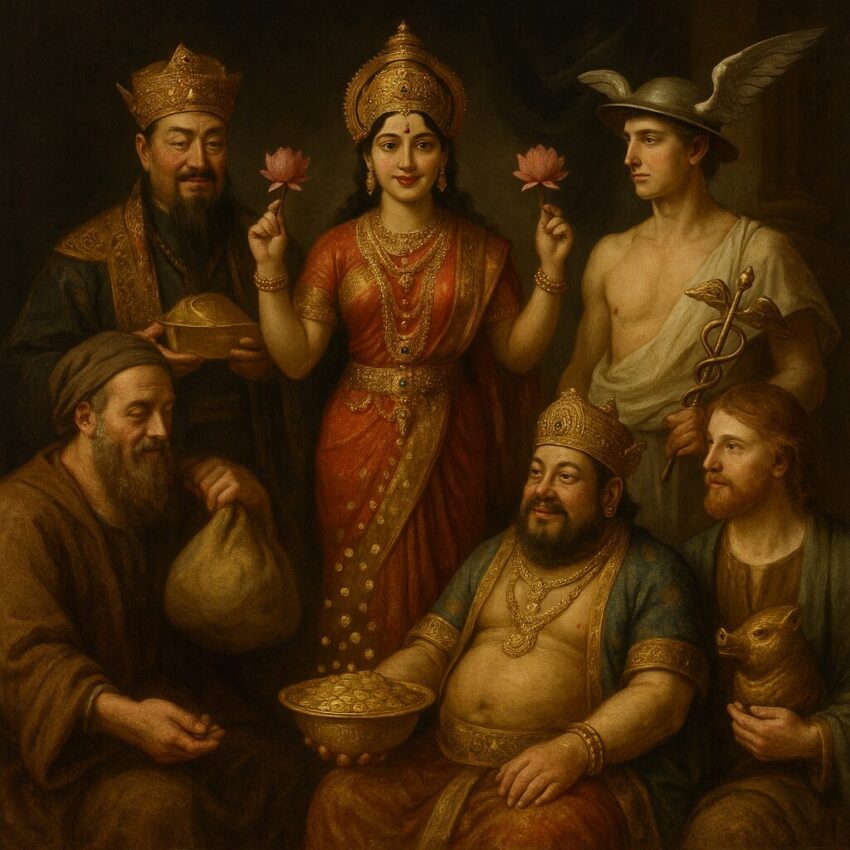Do you know your historical money gods? Let’s take a look.
- Plutus (Greek Mythology)
Role: God of wealth, especially agricultural and material wealth.
Background: Plutus (or Ploutos) was the son of Demeter, the goddess of the harvest. He was often depicted as blind, symbolizing the indiscriminate nature of wealth distribution.
- Lakshmi (Hinduism)
Role: Goddess of wealth, fortune, and prosperity (both material and spiritual).
Worship: Highly revered in Hindu tradition; worshiped during Diwali, the festival of lights, to bring prosperity to homes and businesses.
- Caishen (Chinese Folk Religion & Taoism)
Role: God of wealth.
Details: Popular deity during Chinese New Year; often depicted riding a black tiger and carrying a golden rod or wealth ingots.
- Mercury (Roman Mythology) / Hermes (Greek)
Role: God of commerce, trade, and financial gain.
Note: While not strictly the god of money, his domain included merchants and economic exchange.
- Kubera (Hindu and Buddhist Traditions)
Role: God of wealth and the king of the yakshas (nature spirits).
Appearance: Often depicted with a potbelly, adorned with jewels, and holding a money pot or a mongoose spitting jewels.
- Freyr (Norse Mythology)
Role: Associated with fertility, prosperity, and wealth.
Note: Although more commonly linked to fertility, Freyr also brought peace and economic abundance.
These deities reflect how different cultures viewed wealth — not just as money, but as a combination of prosperity, trade, and divine favor.
I am doing some research on culture and prosperity and ended up taking a turn on ancient money gods street.
Share The Wealth
How do you think these ancient cultures impacted the wealth distribution we have in the world today? Let me know in the comments below.

